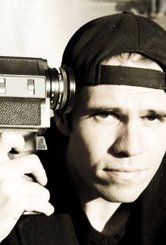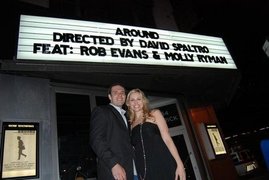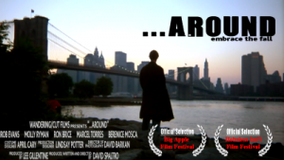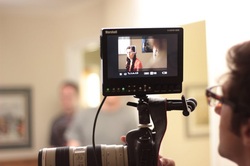
Blake Snyder discusses his career as a screenwriter, why he wrote a screenwriting book, and insights on how he succeeded in Hollywood.
In his 20-year career as a screenwriter and producer, Blake Snyder sold dozens of scripts, including co-writing Blank Check, which became a hit for Disney, and Nuclear Family for Steven Spielberg — both million-dollar sales. He is also the author of the best-selling book, "Save the Cat! The Last Book on Screenwriting You'll Ever Need"
In his 20-year career as a screenwriter and producer, Blake Snyder sold dozens of scripts, including co-writing Blank Check, which became a hit for Disney, and Nuclear Family for Steven Spielberg — both million-dollar sales. He is also the author of the best-selling book, "Save the Cat! The Last Book on Screenwriting You'll Ever Need"

FS: Can you tell me why you titled your book, Save the Cat! The Last Book on Screenwriting You’ll Ever Need?
Blake Snyder: I’ve been a successful screenwriter for over 20 years and because I’ve sold a lot of scripts, screenwriters would ask for my advice, which tended to be the same. I wanted to put into a book everything I learned about screenwriting and pass it on as a gift to others. I wanted it to be fun and slangly, so that’s why it’s called Save the Cat! I wanted my book to be special and different mainly because I have been successful at selling scripts. I did get a lot of slack for writing the sequel, Save the Cat! Goes to the Movies. And the third coming out is Save the Cat! Strikes Back which is about troubleshooting.
FS: After so many successful years as a screenwriter, what made you decide to write a book on the subject?
Blake Snyder: Everything that I learned along the way has been that all creative endeavors, especially in the Film & Television business, is the intersection between art & commerce. To be an inspiration to want to do something, there has to be a practical consideration of how are you going to do it and who are you telling it to? The turning point in my career that got me to writing Save the Cat! is when I got out of college, I entered this industry as a page at NBC and a production assistant.
At some point, it just became clear that what I really wanted to do was write and like any young writer I was banging my head against the wall a lot. For me it came down to the point where I had to ask myself, do I want to have this career or not?
After my father passed away, I studied what movies sold and what log lines attract attention. What is it about a script that people like? That’s when I turned the corner and started selling spec screenplays. I went from very poor, digging coins out of my couch to being a millionaire in 18 months. That’s from applying these things.
FS: One of the most important things you mention in your book about movies is the simple phrase, “What is it?”
Blake Snyder: In my opinion there are many opportunities for screenwriters today than there’s ever been. When my father was in this business there were three networks, NBC, ABC, and CBS. If he ticked off someone at CBS, he was down to two thirds of his market. Today, there is absolutely no excuse for any writer not to have his/her movie made. I’m very blunt about that.
FS: What do you recommend for new filmmakers today in telling their stories?
Blake Snyder: You can make a movie and put it on YouTube or a website, but the question is, will anyone care. What’s going to make people stop the dial and listen to you? Hollywood gets a lot of slack for their story methods, but that the same ones we need to use. What’s the intriguing hook of your story. Why should I watch your film? And it starts with a basic concept of “What is it?” I think you can make your “What is it?” more attractive.
Blake Snyder passed away on August 4, 2009.
(Article originally published in May 2008 on Suite101.com)
Blake Snyder: I’ve been a successful screenwriter for over 20 years and because I’ve sold a lot of scripts, screenwriters would ask for my advice, which tended to be the same. I wanted to put into a book everything I learned about screenwriting and pass it on as a gift to others. I wanted it to be fun and slangly, so that’s why it’s called Save the Cat! I wanted my book to be special and different mainly because I have been successful at selling scripts. I did get a lot of slack for writing the sequel, Save the Cat! Goes to the Movies. And the third coming out is Save the Cat! Strikes Back which is about troubleshooting.
FS: After so many successful years as a screenwriter, what made you decide to write a book on the subject?
Blake Snyder: Everything that I learned along the way has been that all creative endeavors, especially in the Film & Television business, is the intersection between art & commerce. To be an inspiration to want to do something, there has to be a practical consideration of how are you going to do it and who are you telling it to? The turning point in my career that got me to writing Save the Cat! is when I got out of college, I entered this industry as a page at NBC and a production assistant.
At some point, it just became clear that what I really wanted to do was write and like any young writer I was banging my head against the wall a lot. For me it came down to the point where I had to ask myself, do I want to have this career or not?
After my father passed away, I studied what movies sold and what log lines attract attention. What is it about a script that people like? That’s when I turned the corner and started selling spec screenplays. I went from very poor, digging coins out of my couch to being a millionaire in 18 months. That’s from applying these things.
FS: One of the most important things you mention in your book about movies is the simple phrase, “What is it?”
Blake Snyder: In my opinion there are many opportunities for screenwriters today than there’s ever been. When my father was in this business there were three networks, NBC, ABC, and CBS. If he ticked off someone at CBS, he was down to two thirds of his market. Today, there is absolutely no excuse for any writer not to have his/her movie made. I’m very blunt about that.
FS: What do you recommend for new filmmakers today in telling their stories?
Blake Snyder: You can make a movie and put it on YouTube or a website, but the question is, will anyone care. What’s going to make people stop the dial and listen to you? Hollywood gets a lot of slack for their story methods, but that the same ones we need to use. What’s the intriguing hook of your story. Why should I watch your film? And it starts with a basic concept of “What is it?” I think you can make your “What is it?” more attractive.
Blake Snyder passed away on August 4, 2009.
(Article originally published in May 2008 on Suite101.com)







 RSS Feed
RSS Feed
